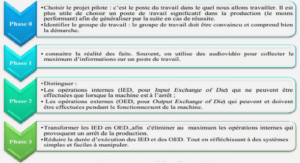AFRICAN CULTURAL CONCEPTION OF
MOTHERHOOD IN FLORA NWAPA’S EFURU
POLYGAMY AND ITS PRACTICE IN SOCIETY
In a culture where infant mortality is outrageously high and the average woman has fifteen children, most of whom do not survive, polygamy has been practiced to not only show a man‟s wealth, but also to assure the continuation of the man‟s family name. Polygamy is represented in many cultures. African culture has a history of polygamy which can be shown through books such as The Joys of Motherhood. Women that are victims of polygamy can face many positive and negative effects that this lifestyle can present but obey their families because of tradition. Regarding the positive aspects of polygamy, there are many strong cultural arguments in support of polygamy among African societies from the social, economical, cultural and traditional points of view. For example polygamy is helpful for the sharing of the house work. In the common African community, life is hard and women have long seen the advantages of having co-wives to help share the burden. This allowed a distribution of labor, in which there were more women to build the family home, which is considered a female responsibility, and other work. It also eased the burden of child bearing, as each wife was not carrying the burden of the family procreation alone. Few women wanted to be a lone wife in a marriage, given the multiple burdens society and tradition would require of her. Having several wives has been a symbol of power, wealth, and influence in traditional African societies for many centuries. Men who have several wives have power, wealth, and influence in traditional African societies. 14 It is important for a man in traditional society to continue his family name into future generations. Having several wives usually ensures that he will have many male children to continue his name. Closely related to the continuation of one’s family name is the idea that by having many children and grandchildren, one will be remembered and honored long after his death. In agricultural societies, several wives is a way to ensure having many children and hence, the necessary laborers for farming, cattle herding and housework. This includes the provision of help when needed, as when some are sick. A larger family community is seen as a sign of strength. Since it is common for many African wives to refuse to have sexual relations with their husbands for up to two years after the birth of a child, having several wives is a way for the husband to avoid sexual immorality. Because African culture has very strong community values, having many wives ensures having a large family, which is seen as the way to increase happiness and meaning to life. If a person has many daughters, his wealth will increase significantly through the bride price at the time of the marriage of such daughters. There is a belief in many tribes that it is very bad to be a single woman and have no children. Because of this, many African women prefer to be one of several wives rather than to be single. Polygamy solves the problem of single parent mothers. To have several wives, and many children, makes a person feel secure about his care in old age. Polygamy offers women the security and dignity required for self-realization. The death of a husband whose wife had not passed the age of childbearing or when the deceased has not left a surviving male heir situation, the brother of the deceased is obliged to marry his brother’s widow . The practice of polygamy besides can have some constructive effects. For example, amongst certain pre-colonial groupings in some parts of Nigeria, it was sometimes conducted harmoniously, as depicted in Achebe’s Things Fall Apart. For instance, this is evident when Ojiugo, Okonkwo’s youngest wife, goes to plait her hair and does not return in time to prepare his lunch and the first wife minimizes her mistakes by feeding her children, though she had not asked her to do so. By doing so she tries to cover for her co-wife’s thoughtlessness. More broadly, some African writers and critics have argued that polygamy had the potential to be harmonious in its ideal form, as Emecheta maintains in her article entitled: “Feminism with a small f”. In this article, she argues that polygamy can allow a woman to pursue other avenues in life without worrying about her husband, because there are other women to care for the home whilst she is away. Furthermore, if the first wife is pregnant, her husband is allowed to marry another wife, who can help with household chores as well as satisfying the man’s sexual needs. Emecheta also argues that a woman in a polygamous situation is able to attend meetings, especially if she is educated as polygamy allows her more freedom to develop aspects of her life outside her marriage. As these arguments suggest, polygamy makes sense from traditional African points of view. However, in contrast to those positive aspects of polygamy mentioned above, polygamy also creates harmful effects. For instance, Ama Ata Aidoo’s Changes: A Love Story shows how polygamy can hamper independent women in various respects. In the novel, Esi realizes that she cannot receive the attention that she wants from her husband and, having experienced both monogamy and polygamous marriages, she wonders to herself if she will ever find true love. Therefore, while there is the possibility for polygamy to result in harmonious and constructive family relationships, it is 16 clear that it is not always the case in reality. Then, further to this, in So Long A Letter, Mariama Bâ shows that marriage in itself can be an oppressive institution, and that polygamy aggravates the position of married women, such as Rama, Aissatou, young Nabou and Binetou. For instance, Rama affirms that she had been silent for thirty years in that marriage with Modou, meaning that she had long been denied her voice long before Modou decided to take on another wife. Thus whether or not a marriage is a polygamous one, it can still oppress women. However, it becomes more difficult for women in polygamous marriages than in monogamous marriages because they have to battle with a number of other issues, such as obtaining sufficient attention from their husbands, in the face of competition from their co-wives. In So Long A letter, men such as Modou and Mawdo embark on polygamous marriages primarily to satisfy their selfish sexual desires, rather than out of a wish to conform to the laws of Islam, which they merely cite to justify their betrayal of their senior wives. Tamsir‟s behaviour is another example of the way in which religious traditions as well as cultural beliefs are perverted to serve men’s interests. Although as it is a widespread practice that in some African societies widows are inherited by the survivors of the family, Tamsir approaches Rama for her hand in marriage whilst she is still in mourning, showing lack of consideration for her feelings, for he and other men feel that they can do anything, no matter how selfish, to obtain what they want. It is evident that a social context of this nature encourages male self-centeredness, while women are not accorded the space to express feelings of their own. Polygamous marriages do not only create tensions between the co-wives, but also within the family at large. Nasimuyu-Wasike says that: 17 “polygamy is the source of enmity of women against other women in which the women remain powerless together trapped in the dynamics of patriarchy that divide and rule”5 One can observe that even the male authors in African literature who project positive images of polygamy do not manage to demonstrate convincing sisterhood among the co-wives . For instance, in Sembene‟s Xala, the first two wives join forces to fight the third wife, yet animosity even exists between the two of them. Another such example is evident in The Joys of Motherhood, in which Nnu Ego battles with jealousy as Nnaife, her husband, acquires new wives. She cannot come to terms with sharing a husband with other women and only forges a relationship between herself and the second wife in order to have a peaceful life. We also see in So Long A Letter how Rama and Aissatou suffer as a result of polygamy. Even on the day of her husband‟s funeral, Rama does not make an effort to hide her feelings towards Binetou, saying: “The presence of my co-wife beside me irritates me. She has been installed in my house for the funeral, in accordance with tradition‟ 6 . She points out clearly that it is purely as a result of tradition that Binetou is present in her house at this point, because personally she would not have liked the idea. Also, her use of the word “installed”expresses her feelings of resentment and lack of control over the situation. As a co-wife, she is bitter. The word “installed”also highlights how commodified Binetou has become as if she is a possession comparable to a piece of furniture, to be disposed of as her owner sees fit. Rendered voiceless and reduced to this state, Binetou has been deprived of the opportunity to develop a sense of independent selfhood and the capacity for self-expression because she does not have anything to say for herself. Rama, on the other hand, does not shy away from expressing her relief that Binetou 5Fonchingong, Charles. 2006. „Unbending Gender Narratives in African Literature. Journal of International Women’s Studies’. 6 Mariama Ba, So Long A Letter, Oxford, Johannesburg: Heinemann, 1981., p.3 18 will leave her house. Thus she exclaims: “Tonight Binetou, my co-wife, will return to her SICAP villa. At last! Phew!”7 Another problem caused by polygamy occurs when the husband becomes particularly fond of one wife, neglecting other wives in favour of one, resulting in emotional and psychological stress. This is the case in So Long A Letter, when Binetou is especially favoured on account of her youthful appeal. Moreover, polygamy can lead to further problems, some of which are depicted in AC Jordan‟s The Turban , in which Nyengebule is especially fond of his young wife, his Ntandanekazi, meaning favourite wife, and he consequently expects to receive special treatment from her in particular. The story revolves around the tragedy that arises as a result of this. Meanwhile, Modou‟s particular fondness for his younger wife creates various difficulties for him. For instance, he attends nightclubs with Binetou, although he does not possess her youthful energy and does not share her enjoyment for such activities. Mawdo also suffers from emotional stress, because he cannot relate to young Nabou and he misses the love and care he received from Aissatou. Thus, in both So Long a Letter and The Turban, polygamy can sometimes even have damaging effects on the husband, although this varies in intensity and can take on different forms. Another way in which we are made aware of damaging aspects of polygamy in African societies stems from the vulnerability of women and their dependence on men as portrayed by Nwokacha Agbadi‟s wives. The Igbo tradition condoles the use and practice of polygamy. A man is free to marry as many wives as he can take care of and they are all expected to remain faithful to the man, as dictated by the tenets of the Igbo religious beliefs. But many men abuse this injunction; they only marry women just to assert their superiority over them. Polygamy takes into consideration little of the women‟s inner most feelings.
MALE CHILDREN AS SELF FULFILMENT
Whereas many western women may view multiple childbirths as both oppressive and restrictive to their work, their economic wellbeing, most African women find empowerment in their children and families. In African society, male children are very important. Apart from continuing the lineage, they run errands when young and help out in the work. When the parents become old and weak it is the duty of the children, especially the heirs or sons, to look after the parents and the affairs of the family. The preference for a particular sex derives from the perceived value or benefits of that particular sex to parents. In Africa, male children are valued for their role in retaining or perpetuating family name staying permanently in or near family compound or residence, provision of old-age security and serving as source of defense and social prestige to parents. When young, male children render assistance to their parents in terms of helping on the farm, helping parents in their business. When the parents die, the children give them befitting burial, survive and remember them. In African society, the misogyny and devaluation of daughters leads mother to hope for a boy when they are pregnant because girls do not strengthen or enhance their lineage, they merely function as objects of patronymic exchange. A female child does not contribute to securing power for the maternal position. In African culture a woman brings honor and power to her family when she gives birth to a boy. 21 For example, in Buchi Emecheta‟s The Joys of Motherhood, Nnu Ego is respected because she has son but as for Adaku, the mother of girls she is not respected or appreciated. She is made to feel inadequate. Male children give many advantages to a woman. For instance in The Joys of Motherhood ,jealousy among the co-wives is evident. Nnu Ego and Adaku are jealous of each other. They compete using their children. Nnu Ego has sons while Adaku has given birth to girls. Nnu Ego did everything she could to make Adaku jealous of her sons. She looked for every opportunity to call the name of her sons in full, telling herself she was having her back. Minor quarrels started between the two women, and Ubani, Nwakusor and their friends are usually called to settle the dispute. Instead of riding herself of some of the shackles that tradition holds over her head as Adaku does, Nnu Ego invels her energy in mistreating and hurting Adaku by flauting both her position as senior wife and positing her claim to hierarchy, property and power in the persons of her sons. As she feminizes her husband, Nnu Ego consciously and laboriously places a barrier of class, power and hierarchy between herself and Adaku. Even though she does not love Nnaife, she clings to her sons to assert her anger and frustrations, not only aimed at Nnaife but Adaku as well, in a society where boys are the “valuable” offspring who ensure men‟s immortality in a society in which daughters are mere helpers, appendages to men to be disposed of, transferable chattel whose purpose is to look after sons. Women who bear male children may even use their status as mothers to challenge some of the demands their culture place on them. They even use their status to make demands and obtain tangible concessions for themselves. Emecheta and Nwapa, for example, illustrate how a woman who is senior wife has at least two things that stand in her favour. These she can use with impunity: 22 one, her position of senior wife; two, her status as a mother of sons, since her sons are the direct heirs to her husband‟s property. The jealousy based on the value of children or inequality among children, is a way of impressing on the children that they were not born equal. This will affect them in life, because from their childhood on, they have never shared the world in equality. One of the reasons why fertility is high in the third world countries, particularly African, is the performance for male children. Couples without male child tend to continue childbearing until they have at least one male child. With a changing attitudinal disposition toward the girl child, it is expected that high fertility due to sex preference reasons that is to say the preference for the male child would gradually begin to wane. Persistently high fertility in the face of declining mortality has been the major cause of rapid population growth in most African countries. Emecheta and Nwapa share the opinion that any gender should not be important than the other, everybody should be treated equally be it male or female. A typical example is seen in Emecheta‟s Second Class Citizen, Adah painfully accept the facts that she was a disappointment to the parents because she was a girl who arrived when everyone was expecting a boy. Although male children are still valued in African society because they carry on the family name and because they increase the family by bringing in women from other families as wives to become part of their own family, more people are now beginning to say openly that they would prefer to have more daughters than sons. This might not be unconnected with the fact that, contrary to the old belief that only the men could achieve certain positions, women have successfully excelled in what used to be male- dominated profession. Today, African women are found in the fields of medicine , engineering, academics, law and business because they have achieved success as Doctors, Scientists, Heads of Universities, Lawyers, Heads of Corporations, Senators, and others. And in spite of their busy schedules, most of them still find the time to nurture their parents. The highly educated women and their awareness may be an opportunity to fight injustices against women. In this respect, we are going to identify one by one the injustices these women and even the so called feminist writers should fight against. So firstly, stress will be led on barrenness considered as a motif for social banishment, secondly on moral oppression and finally we will point out the use of violence against women.
INJUSTICES AGAINST WOMEN
BARRENNESS A MOTIF FOR SOCIAL BANISHMENT
Buchi Emecheta‟s The Joys of Motherhood and Flora Nwapa‟s Efuru deal with the portrayal of the African woman focusing more in the Eastern part of Nigeria. The use of main characters in their novels show what it means to be a woman and a mother in Nigerian society. The major concern in their works is the plight of the rural and urban women whose efforts to satisfy the man is trivialized. Not to have a child in marriage is considered the greatest calamity that can befall a woman. She is supposed to be a virgin to guarantee fertility: “When a woman is virtuous, it is easy for her to conceive”8 . Childlessness is considered, the woman‟s problem and hers alone. Amatokwu vindicates his manhood by marrying another wife. Her conception and delivery are testimonies of his fertility. His marriage to Nnu Ego collapsed because she was considered barren. So Feminism is basically concerned with women and the sad experiences they go through in a gender-based world. It seeks to address the many injustices perpetuated against women. Feminism as a literary theory is applied in the analysis of literary texts and seeks to address the misrepresentation of women in literary works. Feminist writers create women characters that are central to the plot of their works and address the false depiction of women as subservient, servile and docile entities who are incapable of thought and decision and who exist solely for the erotic pleasures of men. Indeed, feminist writers and critics draw attention to the marginalization, objectification and commercialization of 8 Buchi Emecheta, The Joys of Motherhood, oxford, Johannesburg: Heinemann, 1994.,p31 26 women. Helen Chukwuma affirms that in marriage, women attain status worthy of womanhood and come to be respected by the society, but childlessness in that marriage becomes the bane of their happiness. All women are defined either as mother or as not mother. If women do not bear children, then their childlessness is what defines them. Historically cross culturally, a woman status as child bearer has been the test of her womanhood. The phrase childless man and non- father sounds absurd and irrelevant to us. In African culture, barrenness is perhaps the worse affliction even crime a couple can endure , and it is always attributed to the woman. In African traditional society , for a woman to lack reproductive power is to lack all power. Nnu Ego in Buchi Emecheta‟s The Joys of Motherhood finds it difficult to leave behind of her youngest daughters the day she returns back to her home from Lagos. The reason for this reluctance is that Obiageli plays an important role in giving her entry into womanhood by being her child. Obiageli gave Nnu Ego identity as a woman and as a mother. Nnu Ego replied with tears in eyes : “I don’t know how to be anything else but a mother. How will I talk to a woman with no children? Taking the children from me is like away the life I have always known, the life I am used to”9 . Nnu Ego in Buchi Emecheta’s The Joys of Motherhood and Efuru in Flora Nwapa’s Efuru go through pains because they are unable to bear children. The two writers present a society that places child-bearing above companionship and happiness. With the least love, Amatokwu (Nnuego’s first husband) speaks to her when she is unable to conceive : 9 Buchi Emecheta, The Joys of Motherhood, oxford, Johannesburg: Heinemann, 1994.,p 27 “I am a busy man. I’ve no time to waste my precious male seed on a woman who is infertile. If you really want to know, you don’t appeal to me any more…”10 In Efuru, after one year of marriage Efuru and her husband Enebiri have no child, so Omirimma advises Enebiri’s mother: “It’s a year since your son married; one year is enough for any woman who would have a baby to begin making one. Find out quickly if she’s barren; start to look for a black goat because at night a black goat will be difficult to find…”11 Married to Nnaife, Nnu Ego, to her dismay starts having girls, but is joyful when she starts having boys. She bears children and males are among them but she lives in pains, anguish and regrets, and in longing for her sons whose education she has strived for and who, while they are abroad, fail to write to her. Eventually she dies a heart-broken woman. Clearly Emecheta shows that having children does not necessarily bring joy. Efuru has a boy for Enebiri who still abandons her, and the child dies. She finds joy in positively touching the lives of people. Without a child and unlike Nnuego, she does not burden herself with self-pity and dejection. Ogea at ten comes to live with Efuru, and her father who has lost his yam to flood benefits from Efuru’s benevolence. Efuru attains motherhood through industry and charity. Nnu Ego and Efuru share the same sad experience, the pain, the heartbreak, and the misfortunes. They are both industrious women willing to love their husbands; but while Nnu Ego allows herself to wallow in self-pity, Efuru becomes a mother through helping the world around her in spite of her failed marriages and childlessness.
ACKNOWLEDGEMENT |






